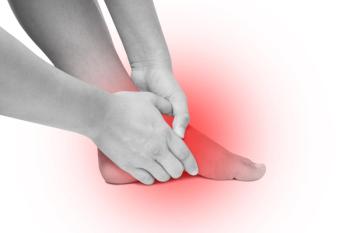
Corticosteroids May Prove Beneficial in Treating Neuropathy
A systemic review of corticosteroid studies finds that their anti-inflammatory effects can be beneficial in addressing peripheral injuries and as a adjuvant for treating the associated pain.
Corticosteroids may prove to be an effective treatment for peripheral neuropathies, according to a systematic review published in
Given the widespread use of corticosteroids in various medical conditions and their established anti-inflammatory properties, Brendan J. MacKay, M.D., co-director of orthopedic research and an orthopedic surgeon at Texas Tech University Health Sciences Center, and colleagues investigated their potential utility as an adjunct therapy for peripheral nerve pathologies that have not received as much attention in clinical practice.
Corticosteroids are well-known for their effectiveness in managing inflammatory, autoimmune, and neuropathic conditions. Their ability to modulate protein synthesis in neurons, particularly affecting myelination through Schwann cells, raises questions about their role in improving nerve recovery and alleviating neuropathic pain. Schwann cells are the cells that form the myelin sheath of the brain.
The literature notes steroids have been used as the non-operative standard for carpal tunnel syndrome, for example, but there remains a lack of consensus on their application in other peripheral nerve disorders.
This review by MacKay and his colleagues used a systematic and extensive approach and included studies only on corticosteroids and peripheral nerve pathologies. They selected 203 studies for analysis.
The findings across a spectrum of conditions highlight corticosteroids' therapeutic benefits in both compression neuropathies (such as carpal tunnel syndrome and cubital tunnel syndrome) and noncompression neuropathies (including metabolic and immune-mediated neuropathies).
Corticosteroids effectively reduce pain associated with neuropathic conditions. The mechanism involves the inhibition of pro-inflammatory cytokines and agonists that contribute to pain pathways. Numerous studies confirm that glucocorticoids decrease the need for opioids post-surgery, suggesting a synergistic role in pain management.
Steroids, when combined with analgesics in nerve blocks, have been shown to significantly prolong pain relief. The addition of dexamethasone to peripheral nerve blocks is associated with extended analgesia duration, indicating a promising adjunctive role in postoperative pain management.
The regenerative potential of corticosteroids, primarily demonstrated in animal models, points to their role in promoting myelination and functional recovery following nerve injuries. While human studies are scarce, a notable case report confirms the successful restoration of nerve function post-injury following corticosteroid treatment.
Several compression neuropathies, including carpal and cubital tunnel syndromes, showed favorable responses to corticosteroid injections. These results underscore the therapeutic value of corticosteroids in specific nerve compression conditions, aligning with clinical practices already established for carpal tunnel syndrome.
The review discussed the limited evidence regarding the efficacy of corticosteroids in treating noncompression neuropathies, including those related to metabolic, immune-mediated, or cancer treatment effects. This highlights the need for more targeted research into their role in these neuropathies.
While corticosteroids are effective, their use is not without risks. Potential adverse effects must be considered, particularly with long-term or high-dose usage. The review emphasizes the importance of balancing benefits against risks.
Corticosteroids show promise as an adjunct therapy in managing specific peripheral nerve pathologies, particularly in alleviating pain and potentially enhancing nerve regeneration. However, their clinical application remains limited and requires further validation through systematic clinical trials. MacKay and colleagues highlighted a critical gap in the literature and called for comprehensive research to develop a standardized treatment paradigm.
The systematic review makes a compelling case for reconsidering corticosteroids in treating peripheral nerve injuries, establishing a basis for future research and clinical application in this area. Understanding the pharmacological mechanisms and refining dosage regimens could facilitate better clinical outcomes and acceptance of corticosteroids in this domain. The authors emphasized the current lack of evidence supporting routine steroid use in peripheral nerve pathologies, signaling a need for more research.
Newsletter
Get the latest industry news, event updates, and more from Managed healthcare Executive.























